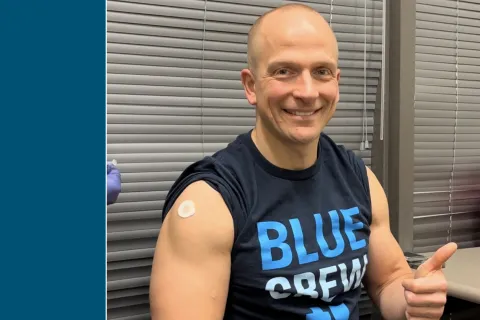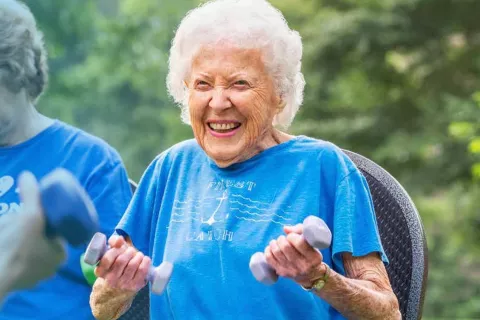Back to school: Dr. Mark Steffen’s guide to supporting kids’ health
Back-to-school season is more than just a return to classrooms-it's a time to reset family routines. The transition from summer to school can be exciting. But as a parent of two teenagers, I know it also brings challenges for many families. From mental health concerns to sleep hygiene and screen time, here are some tips and resources to help support children for a healthy and successful school year.
Mental health matters: anxiety, depression and ADHD
Expectations for getting good grades and fitting in with classmates are major factors that can contribute to anxiety and depression among children and teens during the school year. If you notice your child acting withdrawn, irritable or overwhelmed, talk openly with them. Don’t hesitate to reach out to your pediatrician or school counselor if you need more guidance. There are additional resources like Learn to Live, an online tool available to many Blue Cross members, that can help with managing depression, stress, anxiety and related issues.
ADHD also tends to become more apparent during the school year. If your child struggles with focus, impulsiveness or organization, it may be good to connect with their teachers and primary care provider to determine if your child needs a professional evaluation.
Eating disorders: spotting the signs
Eating disorders often develop or intensify during adolescence, especially in high-pressure situations. Some of the warning signs include skipping meals, obsessive calorie-counting or sudden weight changes. These behaviors aren’t always about food. They’re often about control, anxiety or self-image. Early detection and compassionate support can make a life-changing difference. If you do have concerns, talk openly with your child and get them connected with their primary care or mental health provider.
If your child has already been diagnosed with an eating disorder, situations like buying back-to-school clothes or eating lunch with classmates can cause added stress. Equip Health—an in-network virtual care provider for many Blue Cross members—offers resources to help students and parents manage the transition back into the classroom.
Sleep for success
In many families, it’s common for kids to stay up later during the summer months. Yet, many students—especially teens—are chronically sleep-deprived once school begins. As the days grow shorter and the evenings cooler, fall is the perfect time to re-establish consistent bedtime routines. In addition to earlier bedtimes, try to limit screen time before bed and encourage kids to wind down with calming activities like reading. For sleep duration, the American Academy of Pediatrics recommends:
- Kids 3-5 years of age: 10-13 hours a night
- Kids 6-12 years of age: 9-12 hours a night
- Kids 13-18 years of age: 8–10 hours a night
Seasonal illnesses: prevention starts now
Fall brings a spike in respiratory illnesses, including colds, flu and RSV (Respiratory Syncytial Virus). Make sure your child is up to date on vaccinations, including the annual flu shot. If you have questions, make sure to talk to their primary care provider. It's also important to teach proper handwashing, and to make sure you check your school's guidelines on when kids should stay home from school to prevent spreading illness.
Backpack safety: lighten the load
Heavy backpacks can lead to back, neck and shoulder pain. A good rule of thumb is that a backpack should weigh no more than 10% of your child’s body weight. Look for padded straps, multiple compartments, and encourage your child to use both shoulder straps. If lockers are available, remind them to store unnecessary items during the day.
Devices and screen time: finding balance
Technology can be an important tool in today’s classrooms, but excessive screen time can impact sleep, attention and mental health. Set boundaries around recreational screen use, especially before bed – parents, this one goes for you, too. Encourage device-free zones—like the dinner table—and promote offline activities like sports, music or exploring the outdoors.
Parents: take care of yourselves, too
Back-to-school time can feel just as overwhelming for the adults in the house. To be the best parents we can be for our kids, it's important for us to make sure we take care of ourselves, too. It's a lot like flying on an airplane - you need to put your oxygen mask on first and make sure it's secure before you start assisting others.
With all of this in mind, I wish you and your families a healthy 2025-2026 school year.





